Table of Contents Show
When selecting batteries for your RV coach, it’s important to understand the differences between 6-volt vs 12-volt RV batteries.
Your electrical system in a motorhome or travel trailer usually consists of both alternating current (AC) appliances and 12-volt lines. We’ll be discussing the 12-volt side of things when talking about batteries.
To achieve 12-volts to run your electrical system, you need to have batteries that crank out a total of 12-volts. This can be accomplished with a 12-volt battery or two 6-volt batteries. Here’s a look at the benefits and drawbacks of each:
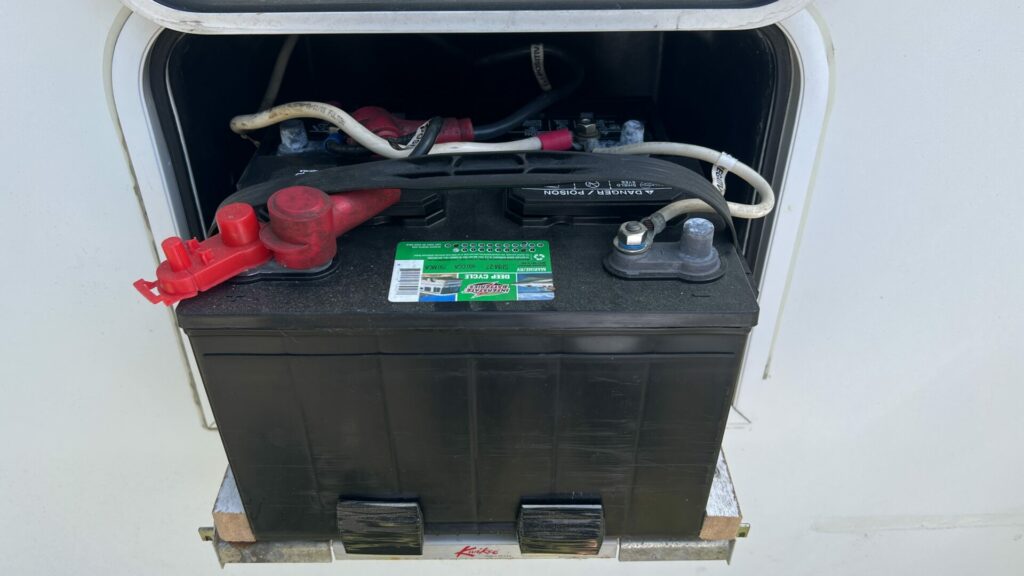
Pros & Cons of Both 12V and 6V Batteries
If you’re looking to replace your old batteries, you’re going to want to know your upgrade options. Many folks researching what to upgrade to encounter the 6V vs 12V debate.
Today, we’re going to try to clear a few things up for you.
12-Volt Pros:
- 12V batteries usually have fewer amp-hours (how much storage the battery has), but you can connect several 12V batteries in parallel to double the number of amp-hours available.
- 12V batteries are usually a little less expensive than 6V ones.
- Your electrical system only requires one battery, if desired.
12-Volt Cons:
- 12V batteries usually have fewer amp hours than 6V ones
- 12V RV batteries are usually heavier than 6V batteries, and if you purchase a 12V with more amp-hour capacity, the battery becomes larger in size.
- 12V batteries with higher amp hours may not fit in your battery compartment.
6-Volt Pros:
- 6V batteries have thicker plates, meaning they can be charged and discharged more frequently.
- They have a longer lifespan.
- Because they have half the number of plates in their cells, 6V batteries weigh less.
- When wired in series, you can double the number of volts with smaller, lighter batteries in your battery compartment.
- 6V batteries typically have larger Ah capacities.
6-Volt Cons:
- 6V batteries are usually a little more expensive.
- You will need double the batteries.
- You will probably only find them at large automotive supply stores and big-box stores like Costco.
Why Use 6-Volt Batteries?
You will mostly see 6V batteries advertised as golf cart batteries but you are able to use them for your RV. Because most 6-volt batteries have a higher amp-hour rating for each battery, it makes sense to purchase two 6-volts and wire them in a series.
That gives you 12-volts, meeting your electrical system’s needs. The 6-volt batteries last longer than most 12-volt ones, and they are lighter, as well.
Pro Tip: Did you know RVs need deep cycle batteries? Read our Complete Guide to Deep Cycle Batteries to learn more.
How to Connect RV Batteries
Connecting 6-Volt Batteries in Series
This means hooking the positive terminal on the first battery to the second battery’s negative terminal.
Then, hooking the remaining positive terminal on the second battery to the ground and the negative terminal on the first battery to the coach’s 12-volt wiring.
Wiring in series will double the batteries’ voltage to 12 volts, but the amp hours will remain the same as what is marked on one battery.
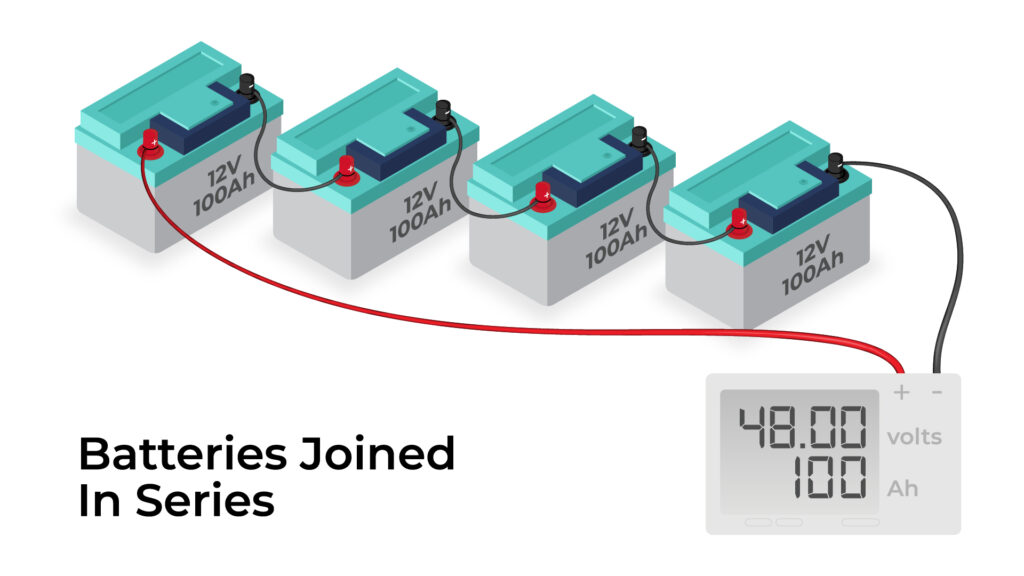
Connecting 12 Volt RV Battery Pairs in Parallel
Connecting batteries in parallel means hooking the positive terminal on the first battery to the positive terminal on the second battery.
You then hook the negative terminal on the first battery to the coach’s 12-volt wiring and the negative terminal on the second battery to the ground.
This keeps the same voltage, but you get twice the amp-hours.
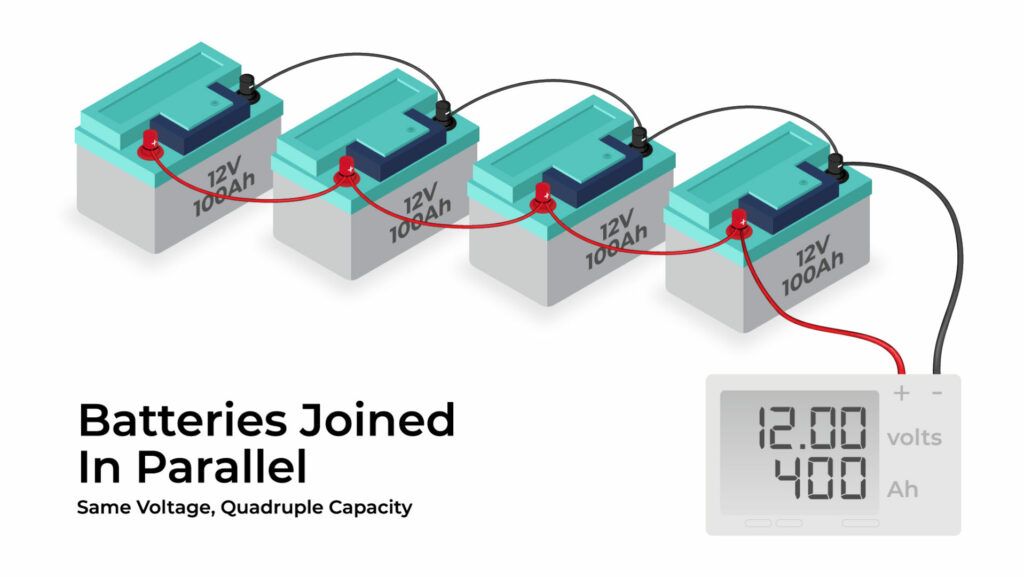
RV Battery Types
Once you’ve decided on the battery voltage you will use, you need to decide if you will purchase them as Lithium, AGM, Gel, or Lead-Acid flooded batteries.
Lithium RV Batteries
LiFePO4 is a newer form of lithium-ion battery solution. This lithium iron phosphate-based solution is inherently non-combustible and allows for a lower energy density, making it a good choice for applications such as an RV battery bank.
AGM RV Batteries
AGM stands for Absorbed Glass Mat. These batteries have fiberglass between the plates in their cells for the electrolytes to pass through. It is considered a “dry” battery, therefore, maintenance-free, as you won’t need to add distilled water.
Gel RV Batteries
Gel batteries, like AGMs, are maintenance-free. They transfer electrolytes through a gel substance created by sulfuric acid and silicate. These batteries can even be placed on their sides.
Lead-Acid RV Batteries
Flooded Lead-Acid batteries use distilled water as the transfer substance, which needs to be topped off monthly. They are usually the least expensive choice for coach batteries.
Battle Born Batteries offers a full line of lithium-ion batteries. Whether you simply want a drop-in replacement for your current battery or want a reliable off-grid system for some serious boondocking, they have you covered. We've used and abused our Battle Born Batteries for years and can confidently say lead is dead.
Are Two 6-Volt Batteries Better Than Two 12-Volt Battery?
There is no right or wrong answer to this question, it’s all about how many amp-hours the batteries have. RVers like 6V batteries because you can get higher amperage batteries.
However, there are 12V RV batteries that have higher amp-hours than two 6V batteries. For example, the Battle Born Batteries Deep Cycle GC3 Battery is a 12V battery that offers 270Ah.
The 6V battery with the highest amp-hours is the Trojan 6V 420 amp-hour Deep Cycle Lead-Acid Battery. You would have to wire two in series to get 12V and would then only have access to 210Ah of the 420 Ah since they are lead acid. So in this case, the Deep Cycle GC3 Battery is the best value.

Extending the Life of Your RV Batteries
Whether you choose to upgrade to 6-volt vs 12-volt RV batteries, there are many ways to keep your batteries in healthy condition so that they can perform for years to come. Below are a few things to consider.
Storage
With all batteries other than lithium, you must not go below 50% of the storage (amp-hour) level. So if your 6-volt series of batteries have 210 amp hours, count on using no more than 105 ah before recharging.
Overcharging
Most batteries will be fine if overcharged with a low current that is 5 times less than your amp hours.
But if the current is higher, you run the risk of the battery overheating and losing its capacity to hold a charge at all.
Battery Service
If you have lead-acid batteries, be sure to top them off with distilled water, checking them at least monthly. Other batteries are maintenance-free.
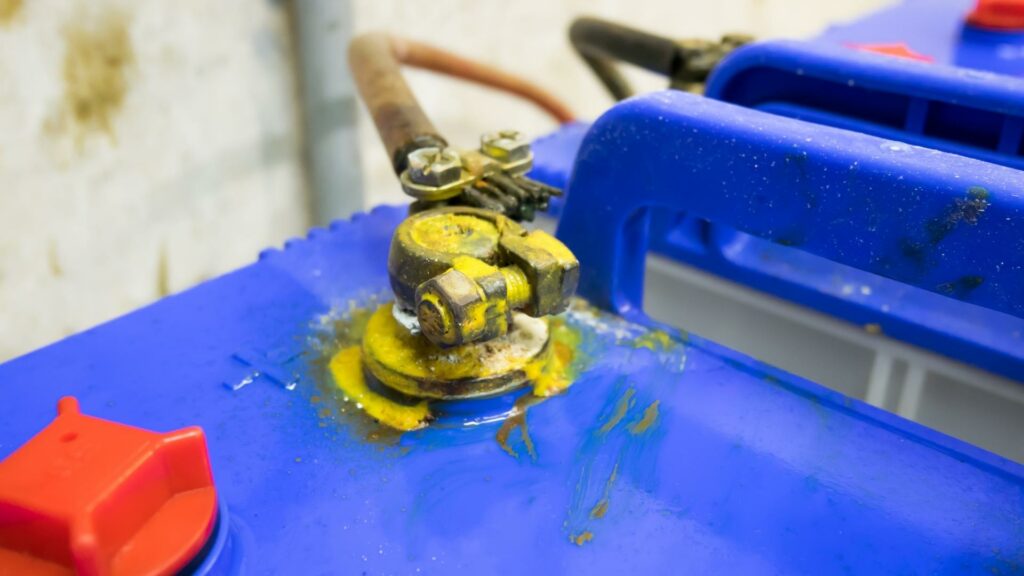
Proper Charger
If your batteries will sit unused for long periods of time, you can add a trickle charger or even utilize a small solar charger to make sure they stay in tip-top condition.
Battery Weight
Take battery weight into consideration when you narrow down your choices of 12-volt or 6-volt batteries.
If you need to keep your rig lighter or you just want to save your back, a 6-volt series may be a good alternative.
Cable Thickness and Length
Be sure that the cables connecting the terminals on your batteries are a large gauge (small number), able to carry the current easily without any heating or corrosion problems. They should also be long enough to handle wiring in a series or parallel.
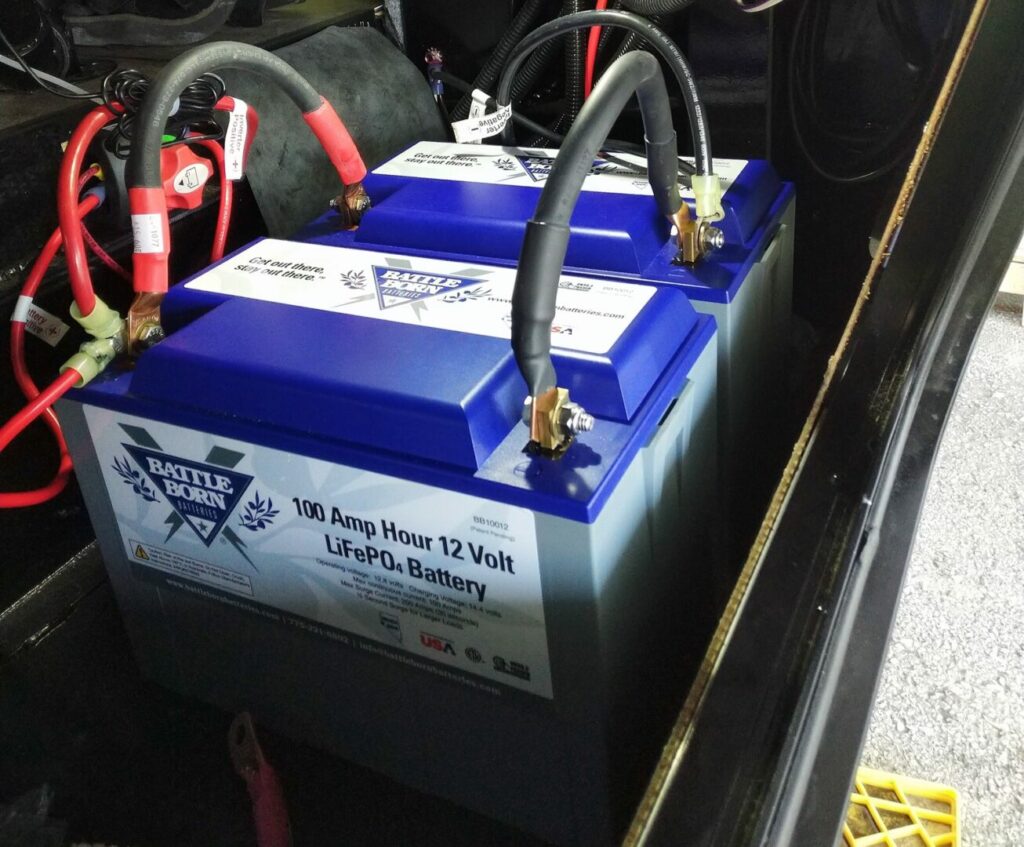
Battery Monitoring System
Consider adding a battery monitoring system to keep an eye on your voltage. Many solar setups have charging monitors, but you can find a simple battery reader at an auto parts store to attach directly to the batteries any time you want to know how they are performing.
Now You Know The Differences When It Comes To 6 Volt vs 12 Volt RV Batteries
We hope this article was able to clear a few things up for you when it comes to 6-volt vs 12-volt RV batteries. All things considered, there is no right or wrong answer. Your budget, space, weight constraints, and personal preference will determine which battery type is best!


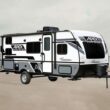

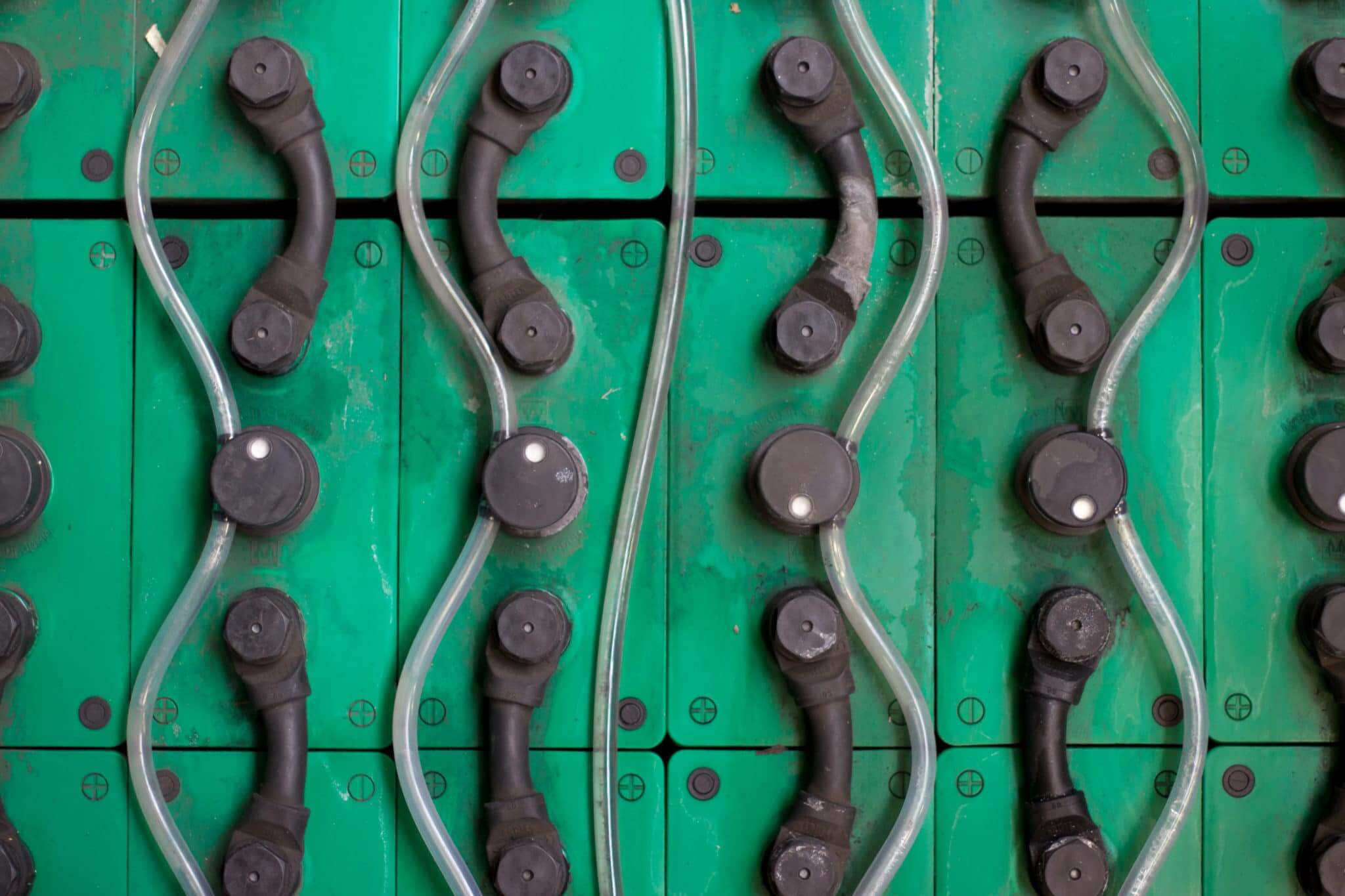


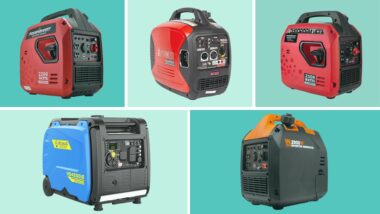
Hello, when I store my trailer I usually disconnect the batteries completely from the cables. Is this a good way to store the batteries?
that is a great start. Even better bring them home.
Leave them in that garage or in the basement, plugged into a Battery tender or some other Float Battery maintainer.
If you are going to bring them home just be sure to clean the tops and put some wood and or plastic/rubber under the batteries to protect them form phantom ground drain. If they are on a tender it wont matter.
Of course if you are only storing for 2 weeks, well then what you are doing is perfect.
Being a relatively new to the world of RVing & batteries, I wanted to educate myself before I replaced the battery on my 5th wheel, and was pleased to have discovered your article, BUT….
I think you’ve made several mistakes…..
While talking about 6volt batteries, you first said;
Wiring in series will double the batteries’ voltage to 12 volts, but the amp hours will remain the same as what is marked on one battery.
THEN……. later you said;
The 6V battery with the highest amp-hours is the Trojan 6V 420 amp-hour Deep Cycle Lead-Acid Battery. You would have to wire two in series and would then only have access to 210Ah.
You article appears to have either over stated the Trojan battery rating….. or….have now DIVIDED the battery amp hours in two??????
This appears to be reflecting badly on the Trojan 6v battery, where you tried to indicate that the Battle Born Batteries Deep Cycle GC3 Battery is a better VALUE because it offers 270 amp hours (10 more amp hours).
If discussing “value” one MUST also discuss the cost of each type of battery;
A pair of the Trojans does not cost anywhere near the $2375.00 (reg. $2900.00) for the Battle Born. Your article’s intent initially appeared to be wanting to discuss how to determine the best VALUE…..how can you discuss value, without discussing $$-costs. Also noted that you did not provide any link for the Trojan. How come? (OK, So we do kinda know why).
This was my first article of yours that I have actually read, and was saving some of your others for later reading, but as my first article, all I can say is;
Very confusing article!
Hey John, Batteries can be a little confusing but I tried to clarify the article. The Amp Hour reduction for the Trojans is because they are lead-acid batteries that cannot be safely drained below around 50% or it starts damaging them. So a 420 AH battery actually is 210 Ah usable power. That being said, lithium batteries have a few other things that would fall in the “better” category. They have a longer lifespan with Trojans coming in around 1,900 cycles and Battle Borns are 3000 – 5000 cycles. They also weigh significantly less. The 2 Trojan 420 Ah batteries weigh 118 lbs each or 236 total pounds for a 60 AH less power. The single Battle Born Battery GC3 is only 80.8 lbs. The Trojans also require maintenance and need distilled water to keep them from killing themselves. The Battle Borns need no maintenance.